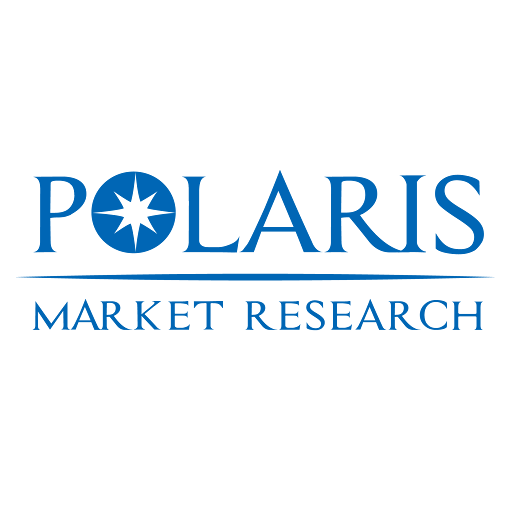Herbal Supplements Market Trends, Drivers, and Key Regional Developments

The global herbal supplements market was valued at USD 42.5 billion in 2024 and is projected to grow at a CAGR of 8.20% from 2025 to 2034, driven by a confluence of rising health consciousness, aging demographics, and a growing preference for natural wellness solutions. Consumers worldwide are increasingly seeking plant-based alternatives to synthetic pharmaceuticals, spurred by concerns over side effects and long-term medication dependency. This shift aligns with broader public health trends emphasizing preventive care and holistic well-being. Regulatory frameworks across key economies are evolving to accommodate this demand, but they also impose significant compliance requirements that shape market entry strategies and product development pipelines. As a result, regional disparities in regulatory stringency, sourcing infrastructure, and consumer behavior are defining the competitive contours of the industry.
North America continues to dominate the market, accounting for the largest share by revenue, underpinned by high disposable incomes, robust retail distribution networks, and strong consumer advocacy for dietary supplements. According to data from the U.S. Department of Agriculture (USDA), herbal and botanical supplement sales in the United States have consistently outpaced overall health and wellness product categories over the past five years. The Dietary Supplement Health and Education Act (DSHEA) provides a relatively permissive regulatory environment compared to stricter regimes elsewhere, enabling rapid innovation and product diversification. However, the U.S. Food and Drug Administration (FDA) has recently intensified oversight of labeling claims and ingredient sourcing, particularly concerning imported raw botanicals. This has prompted domestic manufacturers to invest in traceability systems and third-party certifications, reinforcing consumer trust while raising barriers to entry for smaller players. Canada, too, contributes meaningfully to regional growth, with Health Canada’s Natural and Non-prescription Health Products Directorate (NNHPD) maintaining a balanced approach that supports market access without compromising safety.
In contrast, the Asia Pacific region is emerging as the fastest-growing market, propelled by deeply rooted traditional medicine systems such as Ayurveda in India and Kampo in Japan. Japan’s Ministry of Economy, Trade and Industry (METI) reports that domestic demand for standardized herbal formulations has risen steadily, supported by government-backed research into efficacy and quality control. Similarly, India’s Ministry of AYUSH has implemented policies to promote herbal exports while enforcing stricter Good Manufacturing Practices (GMP) compliance for domestic producers. Rising urbanization and a burgeoning middle class across China, Indonesia, and Vietnam are amplifying demand for immunity-boosting and stress-relief formulations, many of which draw from centuries-old ethnobotanical knowledge. Nevertheless, fragmented regulatory standards across ASEAN countries and inconsistent enforcement mechanisms pose challenges for multinational brands seeking regional scale. Additionally, climate volatility and overharvesting of wild botanicals are prompting industry stakeholders to explore sustainable cultivation partnerships with local farming cooperatives.
Europe presents a more complex landscape, shaped by the European Food Safety Authority’s (EFSA) rigorous stance on health claims and ingredient approvals. While countries like Germany and France maintain strong traditions of phytotherapy—supported by partial insurance coverage for certain herbal remedies—newer EU member states are witnessing accelerated adoption fueled by digital health platforms and e-commerce penetration. Eurostat data indicates a 12% year-over-year increase in cross-border online sales of dietary supplements within the EU single market, highlighting the role of digital distribution in overcoming national regulatory fragmentation. Still, the EU’s Novel Food Regulation continues to delay market entry for many non-European botanicals, requiring extensive dossiers for safety assessment. These hurdles have incentivized European firms to localize supply chains and prioritize herbs with historical usage documentation, such as echinacea, ginkgo biloba, and milk thistle.
Read More @ https://www.polarismarketresearch.com/industry-analysis/herbal-supplements-market
Latin America and the Middle East & Africa, though comparatively smaller, offer untapped potential driven by rising chronic disease prevalence and expanding retail modernization. In Brazil, ANVISA’s recent streamlining of supplement registration processes has attracted foreign investment, while Saudi Arabia’s Vision 2030 health diversification strategy includes funding for integrative medicine research. However, inconsistent import tariffs, limited cold-chain infrastructure for raw material transport, and low consumer awareness in parts of sub-Saharan Africa constrain near-term scalability. Despite these limitations, diaspora-driven demand and growing interest in adaptogenic herbs—such as ashwagandha and maca—are fostering niche export opportunities for certified producers.
Key trends shaping the global market include the integration of AI-driven formulation design, blockchain-enabled supply chain transparency, and personalized herbal regimens based on genetic or metabolic profiling. Consumers now expect scientific validation behind traditional remedies, pushing manufacturers toward clinical substantiation and clean-label positioning. Simultaneously, sustainability has become non-negotiable; certifications like FairWild and USDA Organic are increasingly decisive in buyer decisions across developed markets. While opportunities abound in functional blends targeting sleep, cognitive health, and gut microbiome support, regulatory heterogeneity remains a critical restraint, requiring agile compliance strategies and regionalized product portfolios.
The competitive landscape is characterized by a mix of multinational corporations and specialized regional players, with consolidation accelerating through strategic acquisitions and joint ventures aimed at securing raw material access and expanding geographic footprints. Major companies holding significant market share include:
- Nestlé S.A.
- Herbalife Nutrition Ltd.
- Amway Corporation
- Pfizer Inc. (through its Nature Made brand)
- Dabur India Ltd.
- Blackmores Limited
- Sun Pharmaceutical Industries Ltd.
More Trending Latest Reports By Polaris Market Research:
Vending Cups Market: An Eco-Friendly Method of Serving Beverages to the Consumers
Automotive Catalytic Converter Market
- Music
- Travel
- Technology
- AI
- Business
- Wellness
- Theater
- Sports
- Shopping
- Religion
- Party
- Other
- Networking
- Art
- Literature
- Home
- Health
- Gardening
- Games
- Food
- Fitness
- Film
- Drinks
- Dance
- Crafts
- Causes
